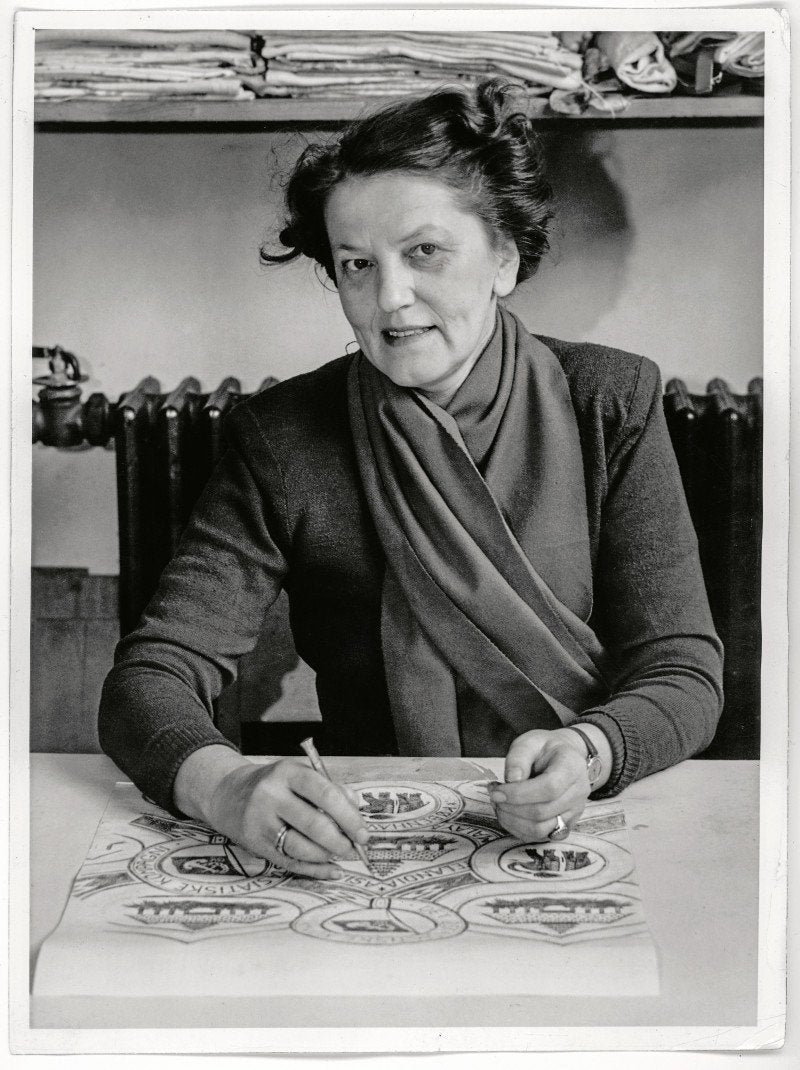Gocken Jobs

Gocken Jobs (1914 - 1995) is one of Sweden's most prominent ceramic and textile artists of all time. She was born in Falun as the youngest child in a group of seven siblings and grew up in an artistic family. Her father was a music teacher and composer and her mother painted and did floral embroidery. Of the seven children, five went on to pursue artistic activities.
Gocken Jobs, like her sister Lisbet Jobs, who was five years older, trained as a ceramist at the Högre konstindustriella skolan (now Konstfack) in Stockholm. In 1935, she received her diploma and the sisters then began to work side by side in Lisbet Jobs' ceramic workshop on Bergsunds strand. During the 1930s, their ceramics with magnificent floral decorations were shown in exhibitions in Sweden and abroad, were loved by the public and praised by art critics of the time for their design language.
Due to the limited availability of glaze during the Second World War, the Jobs sisters eventually began to transfer their designs from ceramics to fabric. Their breakthrough as textile Designers came in 1945 when they launched their characteristic floral motifs at a major exhibition for NK's textile department - "When beauty came to the village". Among the textile prints shown for the first time was "Tuvor", designed by Gocken Jobs. It was printed with white tufts against a colored background, a color combination reminiscent of white glaze decoration on earthenware. The pattern greeted visitors in the form of a green canopy that formed the entrance to the exhibition.
Gocken Jobs is today best known for her floral motifs with meadows and flower beds on textile fabrics. During her lifetime, she designed a large number of patterns that, with their timeless beauty, stand out among the Swedish textile heritage.



